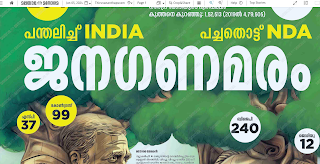In India, the use of 'you' in the vernacular languages is very dangerous. 'You' is a sign of bad manners and the speaker will receive a sound thrashing from the elders. The harmless second person pronoun is a sign of disrespect and challenge to authority. In Indian households, 'you' is reserved for the patriarch, and a strict no-no for children. Mind your words; you means insulting somebody.
For user manuals, Indian patriarchy has no place and 'you' is a perfectly right word to use. 'He' or 'she' invites comments on gender bias and sexist language and has no place in the manuals. Technical writers cannot use 'Dear Sir' or 'Dear Madam' to address the reader. Nor can they use words like 'Boss' or 'Guru', words that produce a dramatic effect on the sons of the soil in Bangalore.
A user manual will be read by single reader, and a single reader only. This is unlike the scene in Indian trains where bored passengers forcibly 'share' parts of a newspaper bought by somebody else. By using 'you', the technical writer talks directly to the user. It is this 'instructional' tone of writing that testers, developers, SMEs, and sundry fail to understand about technical communication. It is this ignorance that leads them to question the hapless technical writer's use of the second person pronoun.
Monday, July 06, 2009
Subscribe to:
Comments (Atom)
Newspaper front pages - June 5
Some images of front pages of newspapers after votes were counted on June 4, 2024 after a ridiculously long parliament elections. Did the ...

-
Some images of front pages of newspapers after votes were counted on June 4, 2024 after a ridiculously long parliament elections. Did the ...
-
The following classification of newspaper headlines is based on my journalism notes. They are from the point of page layout. Flush Left -Hea...
-
Leaders who pick and quibble and snipe are people who fear that a Mojofied team might threaten their own petty power. If your environment is...
